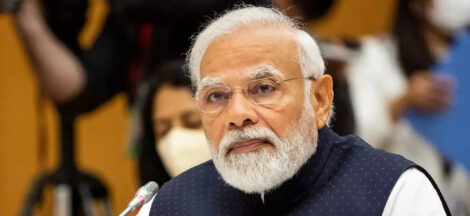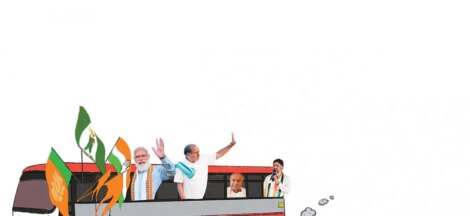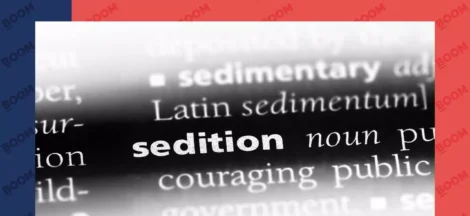By Amritananda Chakravorty
In a landmark decision, the Delhi High Court decriminalised begging in Delhi, and struck down many provisions of the Bombay Prevention of Begging Act, 1959 (‘BPBA’), as extended to the National Capital Territory of Delhi in 1960. In a decision given by the Acting Chief Justice, Gita Mittal, and Justice C. Hari Shankar, and authored by Justice Mittal, the Delhi High Court held that the Act, in so far as it criminalised begging per se, was unconstitutional and deserved to be struck down.
The petition was filed by the former bureaucrat and activist, Mr. Harsh Mander and others, in 2009 challenging the validity of the BPGA on the ground that it violated the fundamental rights of equality, freedom of speech, right against arbitrary detention, and dignity of people guaranteed under Articles 14, 19, 20, 21 and 22 of the Constitution. Primarily, the Petitioners argued that the Act is overbroad, and covers all those who are not necessarily begging, but are poor or homeless, and assumed to be begging. Further, it was argued that Article 19(1)(a) protects speech, including the right to seek alms, while the fundamental right to life and liberty includes the right to take all measures to survive, including by soliciting alms, under Article 21.
Though the Delhi Government did not oppose the petitions, the Central Government had a curious argument, wherein it stated that in order to ‘ascertain whether a person is doing begging owing to poverty, which should not be criminalised, or due to other reasons, he/she ought to be detained in the home, and investigated.
The term ‘begging’ is defined in Section 2(1)(i)(a) as soliciting or receiving alms in a public place, whether or not under any pretense such as singing, dancing, fortune telling, performing or offering any article for sale; entering any private premises for soliciting alms, and having no visible means of subsistence, and wandering about or remaining in any public place in such condition, which makes it likely that the person subsists by soliciting or receiving alms, amongst others. In effect, the law criminalises poverty, and the poor people, who have no other means of subsistence, except begging. Section 4 provides for arrest of a person found to be begging by a police officer without a warrant, while Section 5 provides for detention in ‘certified institutions’ after a summary enquiry.
It is this aspect that the Delhi High Court found as an affront to the constitutional values and principles on the basis of which the country was founded. The High Court noted that “in our constitutional framework that promises every person the right to live with dignity, can the State criminalise begging?” It further noted that “criminalising begging is a wrong approach to deal with the underlying causes of the problem. It ignores the reality that people who beg are the poorest of the poor and marginalised in society. Criminalising begging violates the most fundamental rights of some of the most vulnerable people in our society. People in this stratum do not have access to basic necessities such a food, shelter, and health, and in addition criminalising them denies them the basic fundamental right to communicate and seek to deal with such plight.”
Thus, the High Court categorically held that the State has failed in its constitutional obligation to provide a decent life with dignity to all its citizens, and to criminalise begging would be to penalise people for being poor, which is an anathema to constitutional morality and standards. The High Court also found BPBA to be manifestly arbitrary, since it did not distinguish between voluntary and involuntary begging, as well as between begging and being homeless or without subsistence.
Though BPBA still subsists, and only its application to Delhi has been struck down, and similar such laws exist in almost 20 States and Union Territories, this decision is a hugely welcome decision. The criminalising of begging had its roots in the colonial vagrancy laws as well as public loitering laws, which tended to invisibilise poverty and poor individuals, from the vicinity of public spaces. At the same time, the decision fails to note the disproportionate impact of the anti-begging laws on sex workers and transgender persons, who are routinely detained under such laws ostensibly for begging, but mostly for occupying public spaces, and kept in the institutions for months on end, without any legal redress. The impact of anti-begging laws on these marginalised and criminalised groups is well-documented so it is surprising how it failed to find a mention in the judgment. Pertinently, the hijra/transgender groups are routinely harassed by the police for engaging in their traditional practice of toli/badhai, i.e., seeking alms in exchange for blessing on marriage, child birth, etc, since it amounts to soliciting alms prohibited under the Act.
Following this decision, the State Governments would either amend their begging prohibition laws, or similar such petitions would be entertained by other High Courts. It is very clear that in a constitutional democracy like ours, being poor and undertaking measures to survive, including by soliciting alms, cannot be penalised by any means. [Harsh Mander v UOI, Writ Petition (Civil) 10498/2009, date of judgment: 08.08.2018] (IPA Service)
The post Delhi High Court Verdict On Begging Has Wide Ramifications appeared first on Newspack by India Press Agency.


